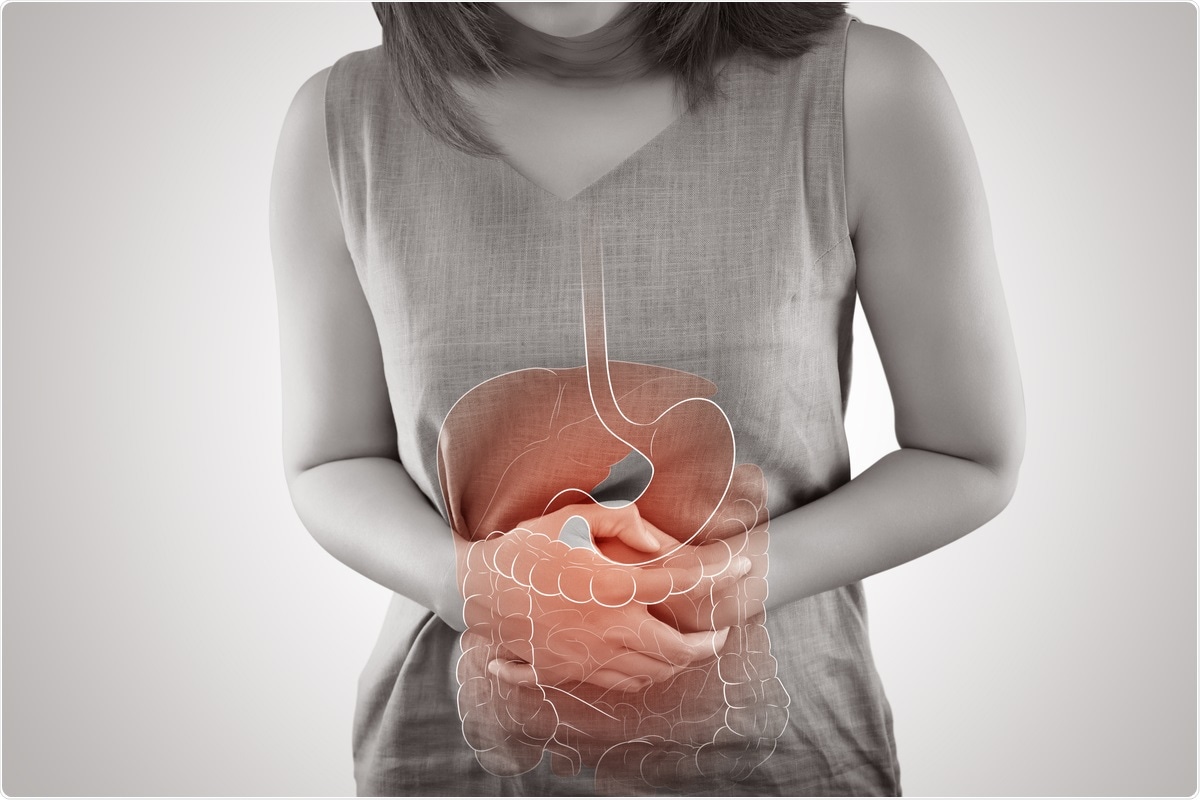COVID-19 vaccination in IBD patients
The coronavirus disease 2019 (COVID-19) pandemic, caused by severe acute respiratory syndrome coronavirus-2 (SARS-CoV-2), has claimed more than 4.71 million lives worldwide. Scientists have worked at a record speed to develop vaccines, therapeutics, and other means to contain the pandemic.
 Study: SARS-CoV-2 vaccination in patients with inflammatory bowel disease. Image Credit: Emily frost/ Shutterstock
Study: SARS-CoV-2 vaccination in patients with inflammatory bowel disease. Image Credit: Emily frost/ Shutterstock
To meet the global demand, the rapid development of vaccines has presented some significant challenges in vaccine deployment. The clinical trials excluded some vulnerable groups, such as individuals with chronic allergies or those on immunosuppressant drugs. Hence, the effectiveness of the COVID-19 vaccine among these groups was not reported.
Inflammatory bowel disease and COVID-19
Scientists have revealed that individuals suffering from inflammatory bowel disease (IBD), with Crohn's disease (CD) and ulcerative colitis (UC), experience dysregulated inflammation in the gastrointestinal tract. While treating IBD patients, physicians predominantly focus on controlling the inflammation, and thereby, many patients are subjected to immune therapies.
Immune treatments include using tumor necrosis factors (TNF)-antagonists, non-TNF targeted biologics, immunomodulators, and targeted small molecule therapies. Scientists revealed that treating IBD patients subjected to immunosuppressive therapies may weaken their immune system and put them at a high risk of infections.
Several studies revealed IBD independently does not increase the risk of SARS-CoV-2 infection or make individuals susceptible to severe infection. However, IBD patients undergoing treatments using thiopurines and baseline corticosteroids may enhance the risk of developing severe SARS-CoV-2 infection.
Also, researchers found that this virus can directly infect gastrointestinal tract cells through the membrane-bound angiotensin-converting enzyme (ACE) 2 receptor. A recent report indicated that 17.6% of IBD patients with COVID-19 experience colonic inflammation with gastrointestinal symptoms.
Although the role of the SARS-CoV-2 virus in aggravating IBD is not well documented, many studies have suggested that this virus could prolong the distress caused by IBD.
Effectiveness of COVID-19 vaccine in IBD patients
Limited amounts of data related to the impact of vaccines on IBD patients are available. Recently, more research in this area is being conducted, which is quite promising. Some of these studies have indicated that COVID-19 vaccination is essential for IBD patients. Based on these studies, scientists proposed that irrespective of medical therapies subjected to IBD patients, a non-live COVID-19 vaccine could be administered.
Scientists believe it is imperative to design guides to support both groups, those delivering and receiving the COVID-19 vaccine, for safe vaccination. A new review published in GastroHep has documented the commonly available vaccination vectors to evaluate the benefits and concerns of vaccination in the IBD patients on immunosuppressants. The authors of this study believe that this report would immensely benefit medical practitioners while vaccinating patients with IBD.
In this review, researchers reviewed all published research related to Phase 1/2 and/or Phase 3 and 4 studies of SARS-CoV-2 vaccinations. They have also considered media releases from pharmaceutical companies, IBD international society position papers, safety registry data, and reports from medicines regulatory bodies. Scientists have also included the impact of vaccines on special groups comprising IBD patients who are pregnant, breastfeeding, and immunosuppressed individuals.
Previous studies associated with the effectiveness of a single dose of COVID-19 vaccine on IBD patients on immunosuppressive therapies, such as corticosteroids, immunomodulators, and anti-TNFs, revealed reduced immune responses. However, two doses of the vaccine showed better efficacy. A multicentre observational cohort study that included 6935 SARS-CoV-2 infected IBD patients receiving vedolizumab, immunomodulators, or anti-TNF therapy, revealed that the rates of symptomatic infection were similar irrespective of the treatment provided.
Researchers determined the influence of the immunosuppressant drugs on COVID-19 vaccines. They analyzed the report of a study that included a cohort comprising 436 transplant patients who were on immunosuppressants and had received the COVID-19 vaccine. This cohort received the vaccine developed by Moderna or Pfizer-BioNTech, and both vaccines were effective. However, the efficacy percentages were lower than the clinical trial report.
Conclusion
The authors recommended COVID-19 vaccination for all adults, including non-pregnant individuals with IBD, without contraindication. There is insufficient data for pregnant individuals, so the risks and benefits should be discussed with the patients.
Evidence on the effectiveness of the COVID-19 vaccine in the immunosuppressed group is limited. Still, researchers highlighted that given the current evidence, the available vaccines are safe for this group.
The authors have supported SARS-CoV-2 vaccination in all adults with IBD. However, SARS-CoV-2 vaccination in children suffering from IBD is not recommended because of the lack of safety data. The majority of studies have shown that this group has a relatively low risk of severe COVID-19 infection. Researchers pointed out that with the emerging data on the effectiveness of the COVID-19 vaccine on vulnerable groups, recommendations must be continually updated.
- Prentice, R. et al. (2021) "SARS‐CoV‐2 vaccination in patients with inflammatory bowel disease", GastroHep, 3(4), pp. 212-228. doi: 10.1002/ygh2.473.
Posted in: Medical Science News | Medical Research News | Disease/Infection News

Written by
Dr. Priyom Bose
Priyom holds a Ph.D. in Plant Biology and Biotechnology from the University of Madras, India. She is an active researcher and an experienced science writer. Priyom has also co-authored several original research articles that have been published in reputed peer-reviewed journals. She is also an avid reader and an amateur photographer.
Source: Read Full Article



